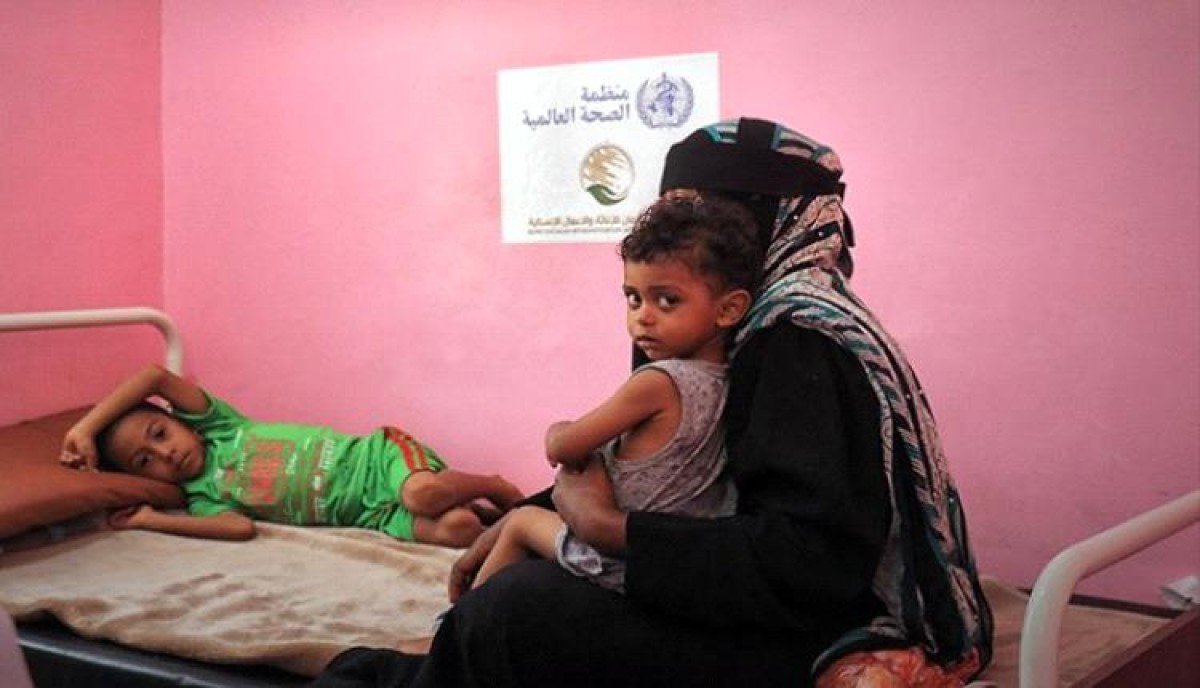World Health: Yemeni children are exposed to devastating diseases


The World Health Organization representative and head of its mission in Yemen, Dr. Arturo Besigan, said that Yemeni children are particularly vulnerable to vaccine-preventable diseases such as polio, measles, whooping cough and diphtheria.
Nearly a decade of conflict has left Yemen exposed to devastating outbreaks of vaccine-preventable diseases, which disproportionately affect children.
Main contributing factors include very limited public health infrastructure and services, limited water availability, and increasing levels of vaccine refusal and hesitancy, especially in Houthi-controlled areas.
Bisegan revealed in a press statement that one in four Yemeni children did not receive all the recommended vaccinations in the national routine immunization schedule, and 17% are children without a dose, and they did not receive a single dose of the diphtheria, tetanus, and whooping cough vaccine.
He pointed out that conflict can have the worst impact on vulnerable children, who fall victim to circumstances beyond their control or capabilities.
The UN official said that low vaccination coverage and hesitation in receiving the vaccine make children vulnerable to outbreaks of deadly diseases that can be easily prevented. Widespread, organized anti-vaccination campaigns that mislead the public have also prevented effective control of disease outbreaks in many communities.
From 2021 to 2023, Yemen reported 237 cases of vaccine-derived poliovirus type 2. Both circulating vaccine-derived poliovirus type 2 (cVDPV2) and vaccine-derived poliovirus (VDPV) appear in Contexts of chronic immunization deficiency.
The cases came from 117 districts, and 90% of the infected children were under 5 years old, while 10% of the cases were among children over 5 years old.
The World Health Organization confirmed the classification of Yemen as a country with a high risk of further international spread of the cVDPV2 virus, as the virus spreading in Yemen has since appeared in Djibouti, Egypt and Somalia.
In 2022 and 2023, WHO supported the implementation of 4 vaccination campaigns using triple oral polio vaccine (tOPV) in 12 governorates across Yemen.
The first and second campaigns targeted about 2.4 million children under the age of ten, and the third and fourth campaigns targeted about 1.2 million children under the age of five. In total, 6,925,255 doses of Topv were delivered during the four campaigns. However, high levels of vaccine hesitancy were observed, leading to the loss of children.
Dr. Besegan said: “From February 25 to 27, 2024, Yemen will join the countries of the Middle East, Africa and Europe in using the new oral polio vaccine type 2 (nOPV2)”
The Ministry of Public Health and Population, the World Health Organization and other partners are planning a campaign targeting 1.290 million children from 120 districts in 12 governorates. Where 6,727 teams will be deployed, including 845 teams in fixed sites and 5,882 mobile teams.